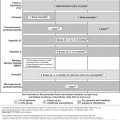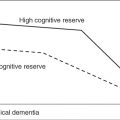Introduction
Old age psychiatry is a relatively young specialty of psychiatry: the first pioneers of ‘psychogeriatrics’ began to develop specialist services for older people in the UK in the 1960s and 1970s. Early service principles included:
- a comprehensive age-related catchment area service
- assessment at home before admission by a senior member of the team
- diagnosis followed by active treatment
- team working
- close liaison with GPs, geriatricians and social services.
In 1989, old-age psychiatry was recognized as a specialty by the UK Department of Health and by the millennium the Royal College of Psychiatrists recognized over 350 specialists in the psychiatry of old age. In 2004, the number of old age psychiatrists was given as 4441 and in September 2007 there were 543 old age psychiatrists (representing 510 full-time equivalents) in England alone (see http://www.cfwi.org.uk/).
It is useful to revisit the reasons why old-age psychiatry first developed. Within an all-age adult psychiatry service, older adults were not receiving the dedicated care and attention they deserved, as they were in competition with younger adults for attention and resources. Younger psychiatric patients present high-profile risks and work with young people carries higher kudos, perhaps because they are economically active and conform to accepted ideals of attractiveness. This ignores the enormous contribution which older adults make to society: most voluntary organizations would disappear without the input they provide, many continue to work long after retirement age, many take up or continue roles as carers (to younger people, people with learning disabilities, to other elders). Others continue to make their wisdom and talents available to the rest of society.
Looking beyond these ageist and attitudinal obstacles, mental illness in late life offers additional challenges as it is often complicated by comorbid physical illnesses, the physical and psychological changes associated with ageing, and/or by the coexistence of cognitive impairment. These attributes demand special skills and organization of the mental health professionals who aim to provide a service orientated to the practical needs of many elders.
The National Service Framework for Older People (NSF-OP: www.dh.gov.uk/en/Publicationsandstatistics/Publications/PublicationsPolicyAndGuidance/DH_4003066) set out a service model for a comprehensive mental health service for older people. Components of the model service were to include:
- mental health promotion
- early detection and diagnosis
- assessment and treatment
- support for carers
- specialist mental health services, to include acute admission and rehabilitation beds, day hospitals and memory clinics, domiciliary and outreach care and outpatient/community clinics.
The NSF-OP was warmly received by many old age psychiatrists as it embedded mental health as integral to the health of older people and its core principles (‘rooting out age discrimination’ and ‘person-centred care’) are potentially powerful influences for positive change in older people’s mental health.
The National Service Framework for Mental Health (http://www.dh.gov.uk/en/Publicationsandstatistics/Publications/PublicationsPolicyAndGuidance/DH-4009598) had been less warmly received as it excluded older adults and focused on services to working aged adults. Monies and developments associated with the NSF-MH therefore excluded older adult services and led to expansion of working-aged adult mental health services at the expense of services to older adults. The NSF-OP stated that older people with severe mental illness would require the packages of care set out in the NSF-MH, but this requirement went largely unnoticed at the time.
Developments in the UK 2005–2010
Over the 5 years between 2005 and 2010 much has happened. Policy never stands still. Securing better mental health for older adults (www.dh.gov.uk/en/Publicationsandstatistics/Publications/PublicationsPolicyAndGuidance/DH_4114989) and Everybody’s Business (http://www.nmhdu.org.uk/silo/files/six-key-messages.pdf) set out useful details about the structure and aims of OPMH services. Our Health, Our Care, Our Say (http://www.behfuture.nhs.uk/archive/docs/appendix_2.pdf) highlighted the need to improve the health and care of people with complex long-term conditions and to provide good local community facilities. It recognized the need for a national framework for NHS continuing and nursing care and clarity regarding what the NHS will provide for those with the most complex long-term care needs—this includes those people who need long-term care for mental health problems in late life. The NSF-OP was followed by the dignity in care campaign (see www.dhcarenetworks.org.uk/dignityincare/DignityCareCampaign/), which straddles mental and physical healthcare services.
Alongside these developments sit professional initiatives. Useful professional documents produced by the Royal College of Psychiatrists include the Faculty of Old Age Psychiatry report Raising the Standard (www.rcpsych.ac.uk/PDF/RaisingtheStandardOAPwebsite.pdf), the report on older adult liaison services called Who Cares Wins (www.bgs.org.uk/PDF%20Downloads/WhoCaresWins.pdf), a report produced jointly with the Alzheimer’s Society on services for younger people with dementia (www.rcpsych.ac.uk/publications/collegereports/cr/cr135.aspx), a report on transitions between general psychiatry services and older people’s mental health services (www.rcpsych.ac.uk/files/pdfversion/CR153.pdf) and an updated report on services to ethnic elders (www.rcpsych.ac.uk/files/pdfversion/CR156.pdf).
The Mental Capacity Act of 2005 (www.opsi.gov.uk/acts/acts2005/ukpga_20050009_en_1) had far-reaching implications in England and Wales for the care of people who may be incapable of making decisions. It changed the legal context: there is an obligation to take ‘all practicable steps’ to help the person make their own decision and to consider whether the outcome could be achieved in a less restrictive way when doing something to someone or making a decision on their behalf. The Act was modified in 2007 to introduce safeguards for very vulnerable people at risk of being deprived of their liberty.
Meanwhile, social care has developed a new emphasis on personalization, which is sometimes seen purely in financial terms as putting people in charge of how money is spent on their care, but, in fact, potentially embraces a much wider move towards giving individuals more control and choice in respect of their support services. New Horizons (http://www.dh.gov.uk/en/Publicationsandstatistics/Publications/PublicationsPolicyAndGuidance/DH_109705) brings together a life course approach, which sees older people’s mental health brought together with mental health at other stages of life and personalization.
With regard to dementia services, this period has seen the controversial 2009 updating of NICE’s Technology Assessment of the anti-dementia drugs (http://guidance.nice.org.uk/TA111), which accepted that the anti-Alzheimer’s drugs are clinically effective but restricted their use (on the grounds of dubious cost-effectiveness) to people with moderate dementia, resulting in a storm of protest in the media. The protests were muted somewhat by the commonsense approach of the dementia guideline (www.nice.org.uk/nicemedia/pdf/CG42Dementiafinal.pdf). Since then, an ambitious National Dementia Strategy (www.dh.gov.uk/en/Publicationsandstatistics/Publications/PublicationsPolicyAndGuidance/DH_094058) has been introduced, but in the prevailing economic climate it will be surprising if the strategy achieves its aspirations. Dementia 2010 (www.dementia2010.org/reports/Dementia2010Full.pdf) has recently highlighted how important it is for the country, financially and in human terms, to face the challenges posed by the dementias, which are costing the UK economy more than cancer and heart disease combined.
Changes in practice have occurred alongside these initiatives. Some services have subdivided into inpatient and community services or sponsored specialist teams for liaison mental health, home treatment2, 3 or even forensic problems.4 There are some enthusiasts for specialist ‘dementia-only services’, a notion supported by some charities and managers. We would counsel the preservation and enrichment of services which are catholic in their acceptance criteria and comprehensive in their coverage.
The Ageism Saga Continues
The exclusion of older people from the NSF-MH in 1999 was regarded by some as ageist and the New Horizons initiative (www.dh.gov.uk/en/Healthcare/Mentalhealth/DH_209) has since recognized that old-age psychiatry is firmly part of the family of psychiatry. However, there are hazards ahead: it is equally ageist to deny that older adults have special needs to which services should be sensitive and in dealing with which service organization and response must be competent. What is right for adults of working-age will not always be right for older people. Older people need services which are designed to meet their particular and often complex needs. These are not confined to dementia, so services should encompass the whole range of mental disorders of late life for a number of reasons:
- The distinction between depressive disorders and the dementias is not a clearly defined boundary. Many people present to services with a mixture of symptoms raising the classical old-age psychiatry conundrum—is this depression or is this dementia? (it may of course be both).
- Older adults with other mental health problems and without a dementia have special needs in service terms and should receive appropriate specialist help.
- Other mental illnesses also overlap with the dementias, for example, anxiety disorders, paranoid states.
Hence the issue of age discrimination in mental health is a challenge for services, which must be tailored to need and not to rigid age cutoffs or politically correct prejudices. This is an important principle in service planning and delivery.
Services
Community Old-Age Psychiatry
Community Treatment
One of the early principles of old-age psychiatry was assessment at home by a senior member of the old-age psychiatry team.5 This led on to the concept of a community clinic6 and many services carry out the majority of their assessment, treatment and follow-up by seeing people in their homes, coordinating the activity of different disciplines using IT support and close liaison between team members. Community treatment for older people involves close working with social services (particularly with day centres for older adults and domiciliary services) and voluntary organizations and close links between the CMHT-OP and places where older adults are resident, including sheltered and extra-care housing and the residential and care home sector.
Early Detection and Diagnosis: Interface with Primary Care
The majority of people with mental health problems in late life are never seen by a specialist service. Many will remain unrecognized even when they have contact with primary and social care services (for more details, see www.nao.org.uk/publications/0910/improving_dementia_services.aspx).
Family doctors are, however, well placed to identify cognitive problems and mood disorders early, to provide people with information and to introduce them, where necessary, to further investigations, treatment and support. Those working in primary care see many elders with physical problems regularly and this gives the opportunity to assess and monitor the person’s mental health in a familiar setting. An established relationship with their family doctor or practice nurse may also help an individual to accept the need for referral to specialist services for assessment, treatment or support or to social services or voluntary organizations. The family doctor is an essential and central person in care coordination. A useful opportunity for early detection presents when people are being seen in primary care for other reasons. For example, people at high risk for arteriosclerosis are also at high risk for developing a vascular dementia, and family doctors screen people routinely for cardiovascular disease. Those who are identified as at high risk are examined regularly and have renal function and lipid levels checked. Some family doctors add a cognitive test to the cardiovascular assessment and use this opportunity to detect cognitive problems. This practice is now rewarded within the QOF system (see www.qof.ic.nhs.uk).
One of the milestones set out in the Older People’s NSF was that Primary Care Trusts (PCTs) were required by April 2004 to ensure that every general practice was using a protocol agreed with local specialist services for the diagnosis, treatment and care of older adults with depression or dementia. Protocols for the treatment of people with Alzheimer’s disease aimed to set out physical investigations and cognitive testing which could be carried out in primary care, in order to facilitate early detection and rapid access to anti-dementia drug treatment if appropriate. Tucker et al.7 found that fewer than 50% of their responding consultant old-age psychiatrists reported that GPs were using protocols for the care of people with depression or with dementia. Where are the protocols now?
A great deal of research is currently being directed towards improving the performance of primary care in identifying and caring for people with dementia.8 Some specialist services have developed formal links with primary care.9
Community Mental Health Teams for Older People (CMHT-OP)
The NSF-OP set out who should be core members of the CMHT-OP: this included community mental health nurses, consultant old-age psychiatrists, clinical psychologists, social workers and occupational therapists. A range of other disciplines were listed as needing to have agreed working and referral arrangements with the team but not working as full members of it. One of the big issues for a CMHT-OP is that of ‘integration’. In this context, integration usually refers to the integration of health and social care (for more information, see http://its-services.org.uk/silo/files/integrating-opmh-services.pdf). The Durham mapping project pilot in older people’s mental health services used four main criteria for an integrated CMHT-OP:
- The team should include interagency multidisciplinary staff involving health and social services.
- It should provide integrated assessment, care planning and care coordination.
- It should use shared recording systems and IT, supporting both the Care Programme Approach (CPA) and the Single Assessment Process (SAP).
- There should be a single point of entry to specialist mental health assessment.
Integration remains an issue today, although, along with protocols, it has become less fashionable. A ‘single point of access’ has become a must-have for many managers who are rushing to introduce it despite feedback from a number of localities that it introduces a new raft of service problems.
How teams work in relation to team members’ responsibility is another continuing question. This became increasingly important because of high consultant psychiatrist vacancy levels in the UK (running at around 12–14%) with associated problems of recruitment and retention, coupled with evidence that consultants were overburdened and stressed.10 An initiative called New Ways of Working (see http://www.newwaysofworking.org.uk/component/option,com_docman/task,cat_view/gid,214/Itemid,412/) claimed to modernise mental health services by placing greater responsibilities on nurses and other non-medical staff. The aim has been to reduce pressure on consultant psychiatrists and to enable them to focus on more complex cases. Insensitive top-down insistence on imposing this model nationally and on including services for older people has not been appreciated.11
Specialist Community Teams
Some services for older people have claimed that there is an advantage in establishing specialist teams: examples include specialist home treatment teams,2, 3 crisis resolution and home treatment teams extended to cover older adults12 and Care Homes Support teams (www.rcpsych.ac.uk/files/pdfversion/CR153.pdf). These initiatives are usually the product of opportunistic local service redesign and require rigorous objective evaluation. Most are conceived in the belief that they will enable more people to be treated in their own homes, thus avoiding hospital admissions and costing less.
Hospital
Hospital-Based Facilities
Stay updated, free articles. Join our Telegram channel

Full access? Get Clinical Tree








